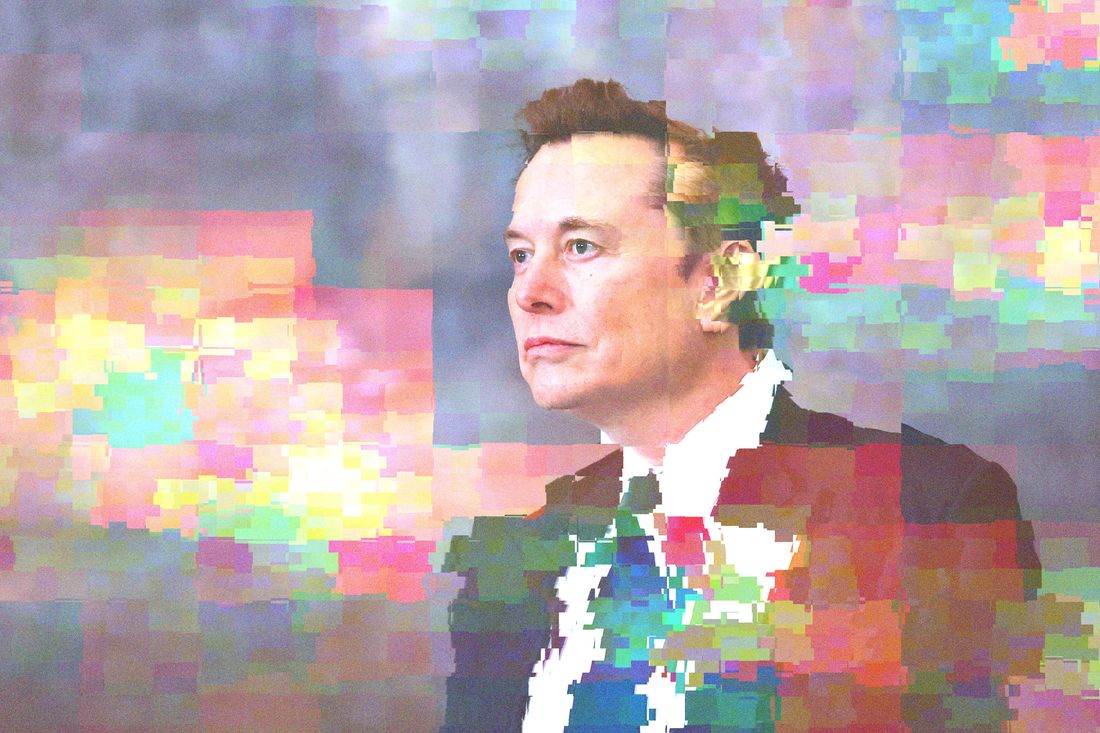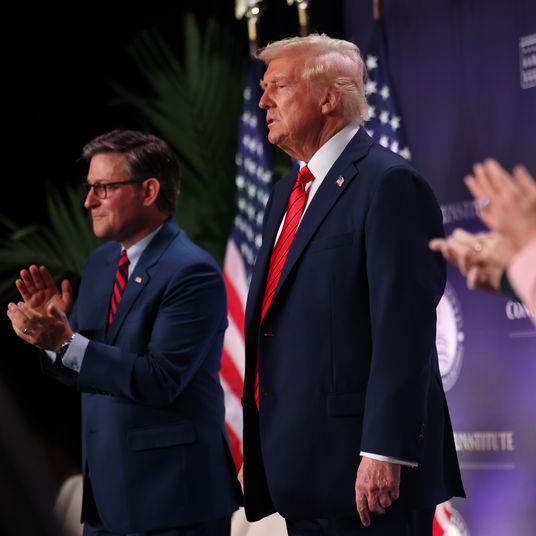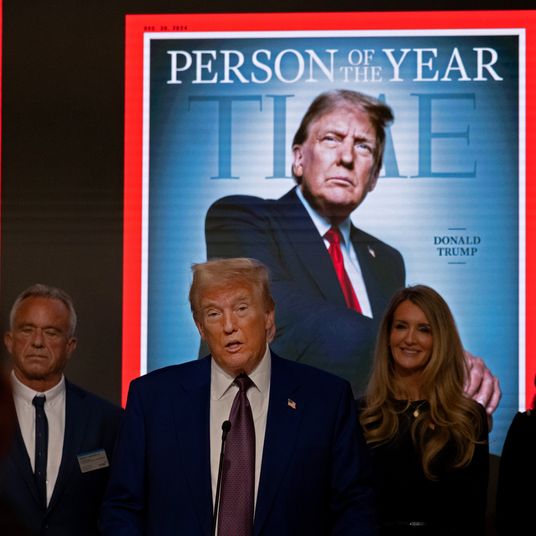
Elon Musk’s aggressive and secretive incursion into the core systems of the federal government really is as “unprecedented” as reporters, lawmakers, and lawsuits insist: The world’s richest man, who was also the president’s largest donor, is racing around D.C. with a team of loyal zoomers under the banner of a dog meme from 2013, trying to shut down entire agencies and take control of the Treasury’s payment system.
This is new territory for the country, but many have noted that the spectacle feels eerily familiar. Back in November, Charlie Warzel wrote at The Atlantic that Musk’s takeover of Twitter was a “blueprint” for “MAGA government.” It’s a useful comparison that many others have made since it actually started: The sudden firings and disregard for regulations and employment law; the nakedly ideological character of the process; the unilateral lease terminations; the sudden RTO-as-attrition technique; the open hostility to current staff; the wild and immediate claims of uncovered fraud and scandal. That an email urging federal employees to accept a strangely worded buyoutlike offer shared its “fork in the road” subject line with a similar email sent to Twitter’s employees suggests a self-aware performance here — Musk wants the world to think he can do to the government what he did to Twitter. That some of what DOGE is up to is almost certainly illegal isn’t lost on him, either. He’s making it clear that he doesn’t care and that such laws shouldn’t apply to him anyway.
The Twitter comparison remains live and useful. Mike Masnick argues that for a preview of where Musk’s campaign goes next, we should look back at the Twitter Files episode, an “orchestrated ‘exposé’ where incredibly gullible hand-picked journalists were given selective access to internal documents to manufacture misleading outrage about Twitter’s content moderation.” He appears to be right. Employees considering accepting their “fork in the road” offer would do well to read up on the multiple lawsuits from Twitter employees who claim they were denied severance, as well Musk’s history of rooting around in internal systems to justify cutting people loose. For understanding Musk’s political zeal, here, X the platform is instructive: As hypervisible as he has been in recent years, I’ve had an unsettling feeling that a lot of powerful people don’t really grasp the full extent to which Musk is marinating in and sharing extraordinarily deranged material on the platform, sometimes hundreds of times a day. In recent years, his raw feed of posts, reposts, and replies has been filled with tweets and characters that would probably surprise anyone to the left of Steve Bannon or less online than the median 4chan user (two thresholds, it should be said, that are now well within the Republican Party’s boundaries, including for government appointees).
Lawmakers, regulators, and judges caught flat-footed by the Tesla guy threatening his way into federal offices and saying a bunch of deranged stuff, some of which you know to be untrue: Strap those eyeballs open and stare directly into the feed. Witness the fixations on the woke mind virus and the Great Replacement and immigrants eating pets. Notice that QAnon is back, all of a sudden. Read it like an aspirational legislative agenda or a docket, and note that he constantly speaks in apocalyptic terms; know, also, that people bet money on how many times a week he’ll post and that the currently favored range is between 650 and 674 times. The strange and confusing things that are happening around you will make a little more sense in this context! (The general public’s awareness of Musk’s whole deal these days is unevenly distributed and lagging, too, but it’s not clear how fully it’ll catch up — I don’t think, for example, that most Americans, including Trump’s supporters, are fully aware of just how much raw MAGA material he posts.)
Anyway: What all this might mean for X, the platform, is perhaps an insignificant question in contrast to its owner’s attempts to install a cross-agency Palantirian control console for switching off funding when National Weather Service forecasts or Medicaid block grants get a little too woke. But it’s worth thinking about, too. Musk clearly cares a lot about X — he trapped himself into buying it and merged it completely with his public persona — but, as a business, it’s not exactly thriving. Growth is flat at best, and that’s if you trust the private company’s vague statements over virtually every other indicator. (“Our user growth is stagnant, revenue is unimpressive, and we’re barely breaking even,” Musk reportedly wrote in an internal email seen by credible journalists, before denying without explanation that he sent any such thing.) Advertising has collapsed. Populations of users have gone quiet, while bots and spammers have spoken up. There’s still a lot happening there, but it’s a diminished platform; by the standards most owners would care about, at least, things are not going well. X’s owner has insisted that this is just a painful process of needed transformation and has mused in similar terms about what he’d like to do to the federal government, deep cutting of which “necessarily involves some temporary hardship,” as he said before the election, “but it will ensure long-term prosperity.”
Maybe Musk doesn’t really care that X is a bad business. X doesn’t need a bailout, strictly speaking, because its owner is one of the few people on Earth who is personally capable of covering its substantial debts and losses, if he needs to; it’s also been, as a tool for promoting his other companies and for gaining political power, a means to other ends.
But a little help certainly wouldn’t hurt, and it’s what Musk’s attachment to Trump — not to mention a perception that he is operating with authority and impunity — is starting to deliver. Behind the scenes, it’s informing the price of his company’s debt. Last August, The Wall Street Journal reported that the $13 billion borrowed for Musk’s acquisition was “the worst merger-finance deal for banks since the 2008-09 financial crisis.” In late January, The Journal reported that banks are hoping to offload $3 billion of senior loans — the safest ones, in other words — at “90-95 cents on the dollar,” which obviously isn’t ideal but could be a lot worse. “Musk’s recent rise in power and alliance with President Trump,” The Journal suggests, “have seemed to help change the narrative around X’s fortunes.”
Similarly, several advertisers that fled the platform — which, again, is not just full of stuff that’s objectively touchy for big cautious consumer brands who have millions of customers who are Not So Sure About All This, but also run by a guy who told them to fuck themselves after they left — are coming back. Some, like Apple and Amazon, are doing so out of what appears to be political expediency, a sort of shadow-president equivalent of throwing a million-dollar token into Trump’s inauguration slush fund. Others, however, might suddenly be taking Musk’s long-shot lawsuit against former advertisers claiming an illegal boycott — amended to include Nestle, Tyson Foods, Shell, and others over the weekend! — a little more seriously than they did a few months ago. Then there was this bit of news:
Maybe it’s nothing — just a strange artifact of a confusing moment. Or maybe it means something that the Trump administration — like the MAGA movement in general — seems to be all in on X, despite the president having and issuing orders from his own social network. Musk’s X has become less useful for disseminating many different varieties of straightforward information, leading some people and organizations interested in doing that to leave or pull back and making it less vital and reliable during, for example, major storms or fires. X’s adjacency to new levels of power might plausibly compel at least some of them to come back — or at least to strap more eyes open in front of the feed.
X is the most obvious and visible beneficiary of this soft-bailout dynamic, but there are other clues, too. Take this report from 404 Media, emphasis mine:
Thomas Shedd, a Musk-associate and now head of the General Services Administration’s Technology Transformation Services (TTS), told government tech workers in a meeting this week that the administration plans to widely deploy AI throughout the government …
These potential changes, he said, would include things like creating “AI coding agents” that would write government software for many different agencies and would be trained in part on existing government contracts, larger scale automations of government, and, critically, changes to Login.gov.
Providing coding assistance is one of the few early ways AI firms have figured out how to make real money, and they also invest a lot in acquiring or licensing nonpublic training data. Musk owns xAI, an OpenAI competitor that is mingled with X in the form of Grok. It’s raised a bunch of money, hired a bunch of talent, and made big steps to catch up with its more established competitors, including OpenAI, which Musk co-founded, split from, and has since been antagonizing. Every big AI company is hungry for data and losing money; even within that context, xAI has a lot of catching up to do, especially now that OpenAI is getting its first government contracts. You know what might help with all that? A vague, broad push for AI across the federal government spearheaded by people who have worked at Musk’s companies. Or maybe a right of first refusal for a wider range of tech and software contracts across agencies? Petabytes of government-sourced training data would be a bonus.
This, too, might sound a bit too speculative, and I should emphasize that I’m imagining these scenarios less in terms of a complex, multistep plan or conspiracy coming to fruition than as the sort of stuff that might seem obvious and even virtuous to a grandiose and power-seeking figure like Musk, if he doesn’t encounter serious roadblocks, alienate his patron, or otherwise autopilot DOGE into a concrete median. We’re talking about someone who has had extensive cooperative, lucrative, and antagonistic interactions with the government already and who has repeatedly tried to bend it to his will. It requires little imagination to see how SpaceX, for example, which has functionally replaced NASA’s launch capability and has the first credible large-scale satellite internet service, could benefit from an officially empowered Musk; these are companies that already depend on government contracts and will continue to do so going forward, and while they offer services to the government that nobody else currently can, they’ve also faced regulatory scrutiny from some of the agencies DOGE has already breached. (They’ll also eventually have more competition, although best of luck with that, Jeff.) Within Musk’s other firms, the Boring Company is regarded by many as a bit of a joke, or at least a distracting fixation, but does that change with some nice big contract to dig some nice big holes for reasons some DOGE zoomer can surely backfill in Grok?
The biggest assist for Musk here involves a slightly different sort of speculation: Tesla, Musk’s largest company and main contributor to his personal wealth. For a variety of reasons, including a broad slowdown in electric-vehicle sales, the company has had a difficult year and just issued a fairly dire fourth-quarter earnings report.
Tesla is a rare sort of company in that it’s both a large automaker that sells a lot of cars and a sort of meme stock that attracts investors based, at least up until recently, on faith — or faith in the faith of others — in Musk’s ability to manifest more than electric car sales: fully autonomous vehicles, humanoid robots, cars that will make you money while you sleep, etc. This is effective for as long as you can sustain it, either by actually making things happen or by coming up with even bigger and more persuasive promises about the future, and Musk mostly has. Recently, as CNBC puts it, this has taken the form of a familiar pivot: “Musk has been telling investors in recent quarters to focus less on the core business as it exists today and more on a future of autonomy and robotics.”
There are good reasons to assume that, in the near term at least, the gap between Tesla the company and Tesla the Elon Musk Memecoin might widen even further, including a seemingly reputation-based sales drop in Europe and especially Germany and the U.K., which are relatively small markets for the company, but also in California, which is a major market for the company and was one of its first. Then there’s what happened right after the election: a massive rally in which investors pushed Tesla’s stock price up by 50 percent despite a muted market response to the company’s October Cybercab event, merging investors’ bets on Musk with the broad and at least corruption-curious Trump trade.
You could argue that Tesla has been “bailed out” by its faithful retail investors, who basically conceptualize Musk as someone who usually gets what he wants, on multiple occasions. Aligning himself with a government — or literally becoming part of it and party to reshaping it — frames its future, and his, in different terms. Musk is used to asking people to imagine futures in which cars drive themselves, robots clean your house, and Mars colonization is just around the corner. Should he manage to embed himself in the federal government, his next big pitch to investors wouldn’t be so specific, and he’d hardly even have to make it: Imagine a world in which I can’t lose. It’s a dark promise that some will surely find intoxicating (at the moment, the market seems to be somewhere between unconvinced and worried). Maybe it’s a historic smash-and-grab and he finds an off-ramp, somehow, or DOGE’s various interventions amount to less than Musk wants them to appear currently.
Or maybe it’s closer to a characteristic all-or-nothing bet: Either he substantially alters the functions of American government in ways that are both ideologically driven and nakedly self-interested, fortifying his wealth and power in strange new ways that call into question the entire American project, to the horror of many of its citizens but with the support of at least some, or he ends up being the guy who tried to do that — who, in his reported words, took his “shot” with “the best hand of cards we’re ever going to have” — and failed.






























